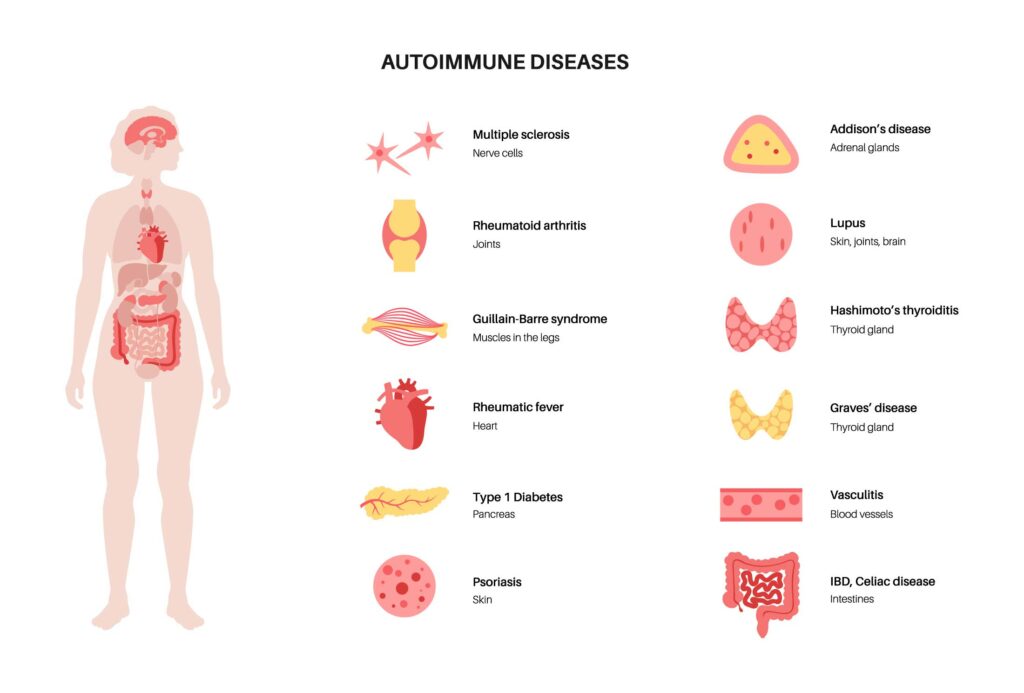Our clinic specializes in
Treating Autoimmune Disorders with Functional Medicine
The function of the body’s immune system is to protect it from disease and infection. When imbalanced the ‘protector’ can mistake part of the body as a foreign invader. As a result, the immune system sends out an army of fighter cells to attack the body creating an auto-immune disease.
Some autoimmune diseases target only a specific organ of the body, for example type 1 diabetes attacks the pancreas. However, there are some diseases, such as lupus, that can target the entire body.
For an auto-immune disease to manifest 3 things must be present:
- A genetic predisposition to develop a particular autoimmune illness
- A triggering event that activates the genetic machinery and begins the cascade that results in the immune system attacking one’s own body
- Increased intestinal permeability or “leaky gut,” which leads to ongoing activation of the immune system.

Lupus
Lupus is a systemic autoimmune disease where the immune system becomes hyperactive and can attack virtually any organ in the body. Inflammation and damage are frequently present in the joints, skin, kidneys, blood cells, heart, lungs, and brain.
Multiple Sclerosis
Multiple sclerosis (MS) is a potentially disabling disease that affects the brain, spinal cord, and optic nerves. In MS, the immune system attacks the myelin sheath covering the nerve fibers, resulting in communication problems between your brain and the rest of your body. Systems that may be affected include vision, balance, muscle control, and other basic body functions.
Vasculitis
Vasculitis is the umbrella term for a set of uncommon diseases that are triggered by the inflammation of blood vessels, or vascular system. It causes the blood vessel walls to thicken, weaken, narrow, or develop scarring. These in turn cause changes that restrict blood flow, and eventually, damage to the organs and tissue.
Autoimmune thyroid disorders (Hashimoto’s Thyroiditis and Graves’ Disease)
Graves’ disease and Hashimoto’s thyroiditis are examples of conditions in which the immune system targets the thyroid gland. The thyroid is a small gland found in front of your neck. It is responsible for creating thyroid hormones which affect just about every bodily system. When the thyroid experiences problems with making these hormones, your body cannot function properly. Commonly one experiences changes in energy level, mood, and weight.
Hashimoto’s thyroiditis, or Hashimoto’s disease, occurs when the thyroid becomes inflamed. The inflammation eventually results in damage to the thyroid gland resulting in its inability to make enough thyroid hormone.
On the other hand, in Graves’ disease, the thyroid gland produces too much thyroid hormone (hyperthyroidism).
Psoriasis
Psoriasis is a non-contagious chronic skin condition in which the immune system cause inflammation the skin and hyperproliferation of skin cells. This results typically in well-demarcated, erythematous plaques on the skin with silver scale. The condition can also be associated with joint and other organ involvement.

